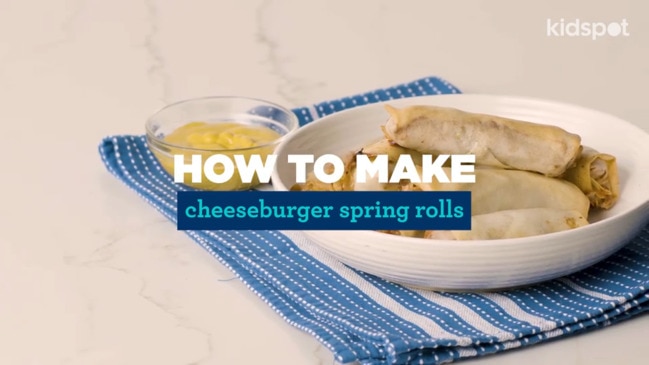How the pandemic has affected children’s eating habits
The Covid-19 pandemic has left many children with a whole new menu of bad eating habits. Here’s expert advice on putting things right.

Parenting
Don't miss out on the headlines from Parenting. Followed categories will be added to My News.
From dishing out biscuits and snacks as hush bribes during Zoom calls, to minimising mess by sticking to plain foods, surviving Covid isolation with children has left many families doing whatever it takes with food.
Clinical psychologist and eating disorder specialist Dr Rachel Cohen, has encountered a rise in the number of parents worried about children’s increasingly fussy eating habits over recent months, and says survival hacks can trigger a vicious cycle.
As we return to normalcy, Cohen and practising dietitian Karen Inge provide tips for parents whose previously “good eaters” have now become fussy eaters.
GIVE KIDS SOME CONTROL
Whipping up an alternative meal will teach children to hold out for something better.
But involving them in meal planning, helping with cooking, and having select choices will help them feel like they’re in control.
“It could be, ‘Would you prefer carrots and beans, or broccoli and cauliflower?’,” Inge says. “A lot of two-year-old mealtime tantrums are about them trying to control something in their life.”
DIVIDE AND CONQUER
Parents should choose what and when to feed their children, but children choose how much. “It’s the division of responsibility,” Cohen says. “We all need to be able to regulate our own appetite.”
She says to accept there will be days when kids will hardly eat, but with a child’s body absorbing nutrients over a one to two-week period, that makes it OK.
Inge adds we shouldn’t expect them to eat the same amount each day. “They are growing at different rates, they have a smaller stomach, and it depends on how active they have been. Don’t bribe them, or make it traumatic by force-feeding.”

PERSIST
Brace yourself: It can take up to 15 exposures to a new food before a child will accept it. “You might have broccoli there on the plate, mixed through pasta, or use it for sensory play, dipping it in paint. Just being able to touch it, without the pressure to eat it, builds trust.”
Cohen suggests including a safe, familiar food with each meal.
“You don’t want them to reject everything,” Inge adds.
“If you know they like pasta, you can try introducing a bolognese with some meat, beans or lentils.”
She says vegetables left uneaten can later be smuggled into a sauce or added to a smoothie.
MODEL GOOD EATING
A revival of the sit-down family meal was one of the positive spin-offs from lockdown, and Inge emphasises the importance of modelling healthy eating for kids.
During family meals, a platter of steamed vegetables can be an appealing alternative to an individual serving, she adds: “they’ll see everyone taking some, so they’ll want to take it, too”.
If you prefer to eat after the children are in bed, Cohen suggests making yourself a small plate with a few of the things they’re having.
“Seeing you eat your broccoli is so much more impactful than just telling them to eat theirs.”

STOP THE BRIBES
Cohen says using food as a reward, bribe or emotional soother is associated with greater consumption of unfavourable foods and emotional eating.
Similarly, research shows that those who were given forbidden foods as a child are more likely to seek out and binge on those foods when made freely available.
EMBRACE THE MESS
Cohen encountered her own mealtime difficulties as she balanced work pressures with a then 10-month-old daughter, Maya, at home during the 2020 nationwide lockdown.
“I was avoiding messy foods or I was constantly on my hands and knees cleaning as she went – it was a battlefield,” she says.
The challenge led Dr Cohen, and husband Brad, to create the High Chair Catchy, a device which captures food for reuse, and keeps it off the floor.
Cohen says mess is vital. “Touching, smelling, exploring with their hands and mouths – it’s really part of the process of learning to tolerate new foods,” she says. “
A lot is about the texture, not the flavour. If they haven’t been exposed to it, kids won’t necessarily tolerate anything that’s slimy, gooey or thick.”

FUSSY EATING POST — COVID
A Covid-19 infection can compound mealtime woes for parents, as the virus has been linked to a temporary distortion of taste and smell, called parosmia.
With Covid infection rates rising dramatically among children, parents may find that foods their children previously accepted have suddenly become distasteful.
As with any change of appetite due to illness, Dr Cohen advises parents to balance persistence with nurturing.
“Don’t go into crisis panic mode and start changing all the rules you had - you don’t want to create a problem that persists when the sickness and aversion stops,” she says.
Trial and error helps, and Dr Cohen suggests experimenting with a range of healthy foods, rather than resorting to simple, bland meals.
Serving foods at room temperature is another hack to try, as this will minimise the smell.
“If you’re worried about them losing weight and not getting the nutrition they need, this could be the time to blend things into a smoothie,” Dr Cohen adds.
Originally published as How the pandemic has affected children’s eating habits



